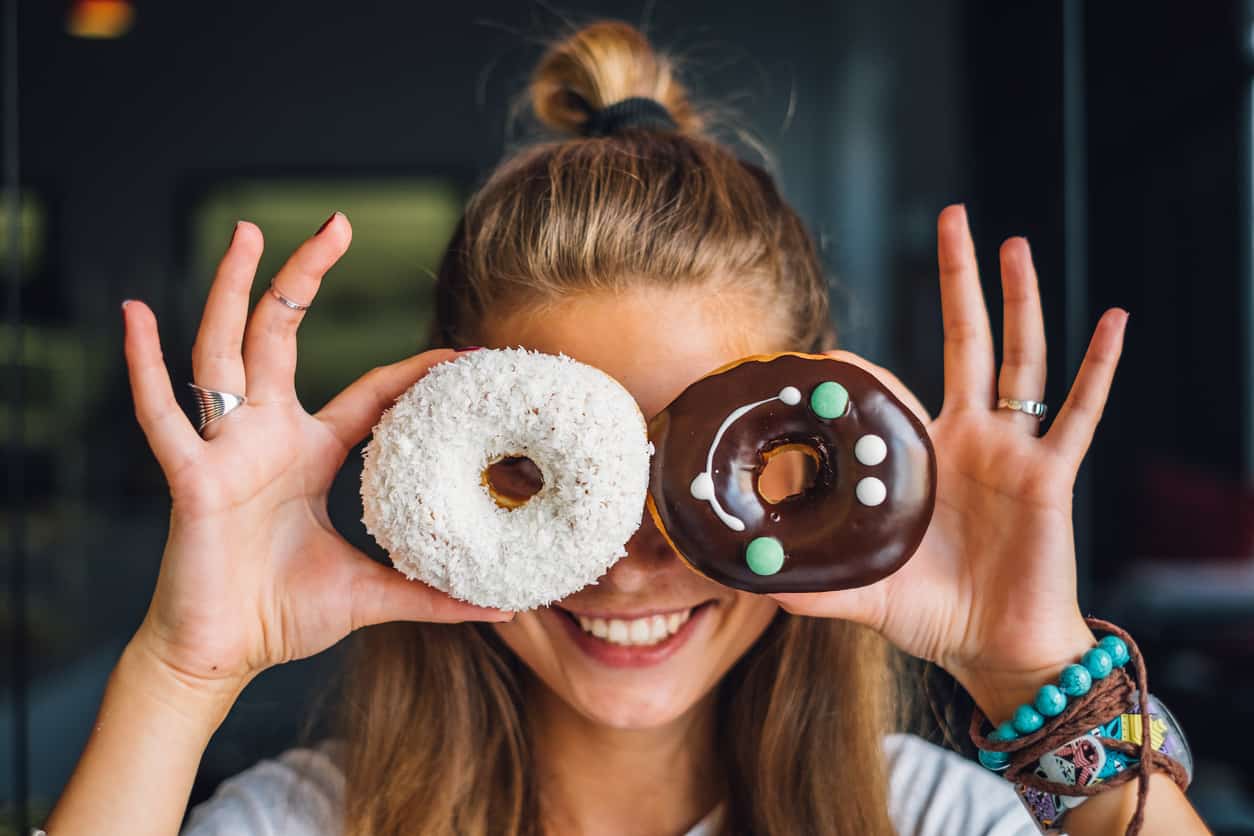When you’re feeling sleepy and lazy AF, nothing sounds more appetizing than a fast food meal and/or all of the chips, cookies, and junk in the cabinet. Eating healthy sounds like the ultimate chore. There’s actually a scientific reason behind our hunger for junky eats when we’re tired. And science even tells us why we’re more willing to spend money on unhealthy snacks when we’re running on empty.
A recent study from researchers at the University of Cologne in Germany found that sleep-deprived individuals displayed high levels of des–acyl ghrelin in their blood, otherwise known as the “hunger hormone.” These findings, published in the Journal of Neuroscience on November 17th, explain why tired people eat junk and are willing to pay more for said junk.
For the study, 32 healthy men between the ages of 19 and 33 were fed the same dinner of pasta and veal and then split in to two groups. The first group was told to go home and sleep as they normally would while wearing a sleep-tracking device. The other group was kept at the lab and deprived of sleep.
The next morning, the participants reconvened and rated their hunger levels, which were all about the same. As were their blood sugar and hormone levels.

The 32 participants were also given MRIs during which they were shown several different images of junk food and inedible items. Those who were sleep deprived exhibited a higher level of activity in the amygdala section of the brain — the section that processes rewards for eating — when food images appeared, in comparison to those who had enough sleep.
And when given a hypothetical three euros to spend on either food or the inedible objects, those who were sleep deprived most often chose the snack and were willing to spend all three euros. This impulse was seemingly connected to the hypothalamus — the part of the brain that regulates appetite.
Scientists conclude that tiredness affects the brain’s processing, and therefore makes you more likely to turn to junk food when your energy is lacking.

It should be noted that researchers only looked into tiredness in regards to eating junk food and did not look into a possible correlation of tiredness and eating healthy foods — so there may still be hope for us yet.
Now, if only we could unlock the secret to getting a good night’s sleep, right?
"when u really want to sleep but u can't " mood is really annoying
— aria (@simplyyaria) December 19, 2018
Whoever it is — sleep with one eye open.
I can't sleep. So instead of counting sheep, I count Mueller indictments.
— Aaron (@TheSarcasmShow) December 20, 2018
Why is it that I get super motivated and productive right as I’m approaching bed time? 🙄 This is why I can’t have a nice sleep schedule.
— Alice (She/her) (@ablondshell) December 20, 2018
~It’s the circle of liiiiife~
me: why can’t i sleep it’s so late😔😧
— ellie (@ellieaddi) December 19, 2018
me: turns over and checks every single notification i get
Now all of a sudden, this cycle has been validated…by science!
U ever just feel urself getting progressively more sick as u continue to mistreat ur body with unhealthy foods and irregular sleep and a terrible lifestyle but u...just.....can’t....stop?
— ~ (@kellyblaus) December 19, 2018
Thank God I can’t sleep...it gives me more time to worry about the stuff that I didn’t have time to worry about during the day because I was busy worrying about other stuff.
— Ron Pope (@RonPopeMusic) December 18, 2018
Luckily, there are people looking out for us.
PSA: anyone w anxiety & can’t sleep at night bc of it, I use this weighted blanket. It’s made specifically for people w anxiety. It’s based on “DTP”which means deep touch pressure & works by applying pressure on the body, releasing seratonin. It’s pretty dope🤩 thought I’d share pic.twitter.com/D9SUMr4PMF
— Emma Mattes (@EmmaMattes) December 18, 2018
Turn off the tech, get under your weighted blanket, and try your hardest to tune out that stress noise. Hopefully, you’ll wake refreshed and without a hankering for junk. (Our fingers are crossed, anyway.)

